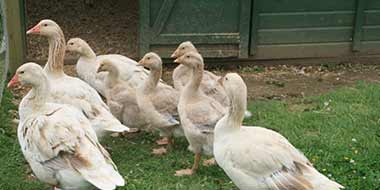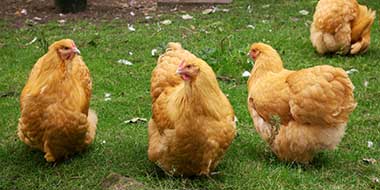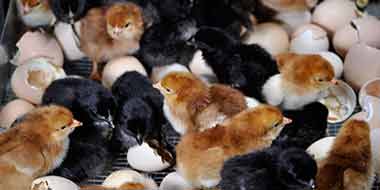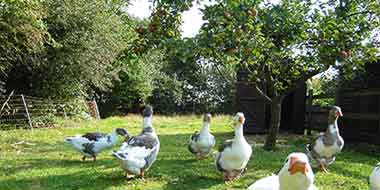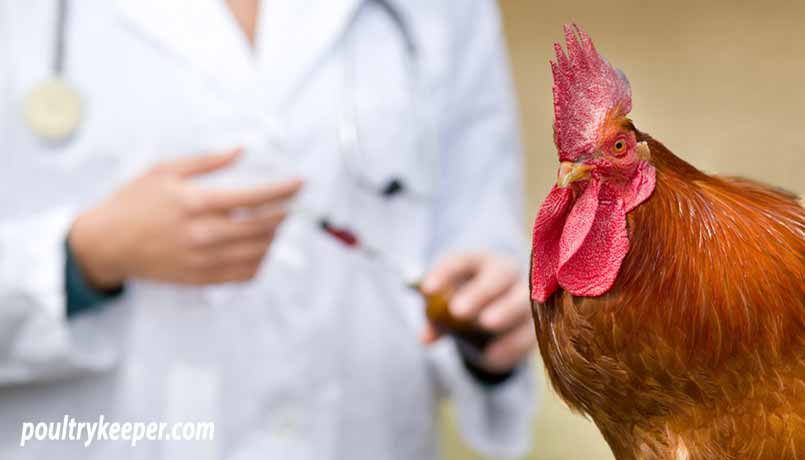
Should I vaccinate my flock? This is a question often faced by vets in practice, and the answer is often a complex one. Firstly, let’s look at what a vaccine is before we consider vaccinating chickens.
A vaccine is made up of either an inactivated form of the organism that causes the disease you are trying to prevent or a live vaccine containing a less dangerous version to the animal.
Live vaccines tend to provoke a better immune response by the animal. Still, the immunity lasts for a shorter period than inactivated vaccines which create an immune response that lasts longer but tends to be less effective.
First, we should look at why there may be a need for vaccinating chickens. The main reason is to prevent a disease from entering or preventing the symptoms already present in a flock.
The best disease prevention method is biosecurity! Simple protocols such as buying in birds bred from stock that have a high health status (as clear from as many diseases as possible at the time of purchase) and regular cleaning out of coops, feeders and drinkers with a good detergent (such as PoultryShield) and a disinfectant will also help keep pathogens to a minimum.
If your biosecurity is in tip-top order and can be improved no further, there may be room for a vaccination protocol.
What can we vaccinate against?
Commercially there are many diseases which we can try to prevent using vaccines; however in backyard flock situations, vacciniating chickens is often only necessary if at all to protect against the prevalent diseases. Below is a list of the vaccines most commonly used in backyard flocks:
- Marek’s Disease
- Avian Rhino Tracheitis
- Infectious Bronchitis
- Salmonella
- Mycoplasma Gallisepticum
What should I vaccinate against?
Respiratory disease is a common problem faced by keepers. It is most often but not exclusively caused by one or a mixture of Mycoplasma species, Infectious Bronchitis or Avian Rhino Tracheitis.
Before vaccinating chickens, it is best to identify which pathogen your birds are suffering from to know which vaccine to use. A blood test is most likely needed to determine the possible causative pathogen; it will test for the three most likely pathogens and will guide you as the keeper and your vet as to which one to vaccinate against.
If vaccinating is needed, two doses are given via intramuscular injection spaced four weeks apart, and subsequent annual boosters are necessary.
Marek’s disease is a disease that owners often want to vaccinate against as the effects of the illness are particularly nasty and can be lifelong in your flock. However, suppose your chickens have had no previous symptoms suggestive of Marek’s, and you do not buy in birds regularly from unknown disease status flocks. In that case, we generally advise against vaccinating.
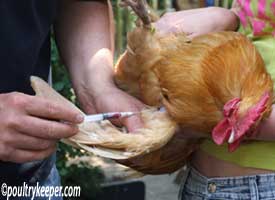 Salmonella is a pathogen well-known to many people, and commercially there are many protocols and systems in place to prevent the development of salmonella infections.
Salmonella is a pathogen well-known to many people, and commercially there are many protocols and systems in place to prevent the development of salmonella infections.
The vaccination protocol is similar to respiratory vaccines. However, the vaccines used tend only to protect birds against infections from two species of salmonella. The vaccine does not protect against several other strains of salmonella; this is a significant cause as to why it is generally not necessary to vaccinate in backyard flocks.
If high hygiene practices are in place when handling chickens or processing items such as eggs or meat, then there should be minimal risk to the keeper from salmonella.
When to vaccinate chickens?
It is always best to vaccinate birds from day olds when they have not already been exposed to the pathogen which the vaccine is trying to prevent.
Vaccination via injection for Marek’s usually occurs at day-olds, and respiratory pathogens such as mycoplasma gallisepticum, avian rhinotracheitis or infectious bronchitis at point of lay.
Often owners would like to vaccinate their birds when they buy them, unsure of their age. The main problem is the unknown history of exposure to pathogens.
Birds purchased from a market may already have the virus that causes Infectious Bronchitis; therefore, vaccinating the bird would be a fit and healthy bird in the keeper’s eyes. Still, it could be shedding the IB virus and infecting the rest of the flock.
In this instance, the gold standard would be to test (via blood) whether or not this bird had had a challenge of IB and whether or not it is worth vaccinating.
Where to get vaccines from?
If you decide vaccinating chickens is an option, vaccines can be ordered through our vets, St. Davids Poultry team Ltd.
Vaccines are usually produced in large quantities for hundreds of thousands of birds, but we can break them down into 1000 bird doses that are relatively well priced.
It is still worth remembering that vaccinating chickens is not always 100% effective at preventing the disease for which they are made.
There are many complex reasons why some vaccines may not work and this is why we recommend you speak to a vet who can tailor-make a vaccination protocol for your flock and the environment in which you keep your birds.
Birds should also not be injected with a vaccine without prior training as a lot of damage and potential welfare issues can arise if a bird is vaccinated incorrectly.

